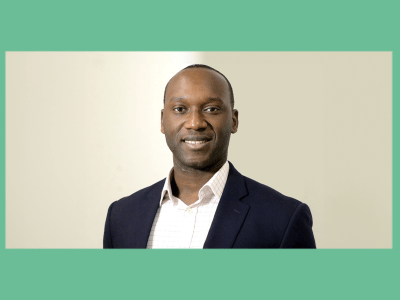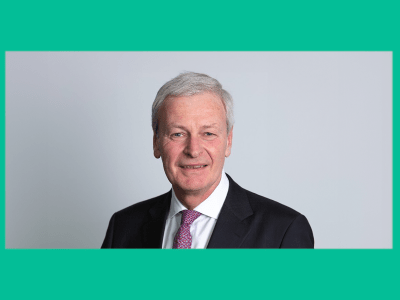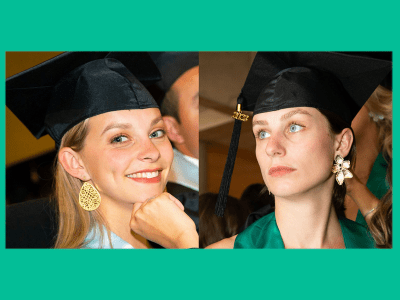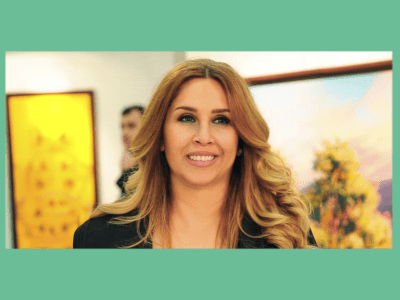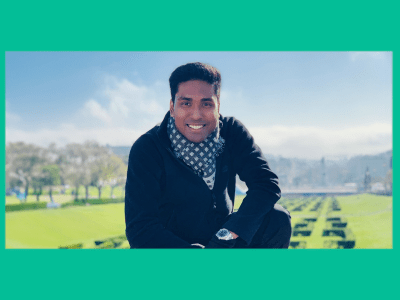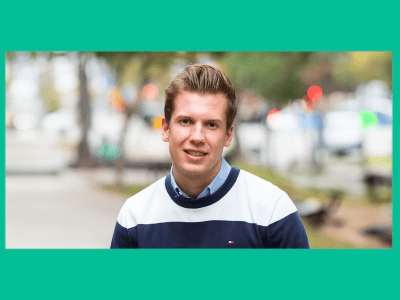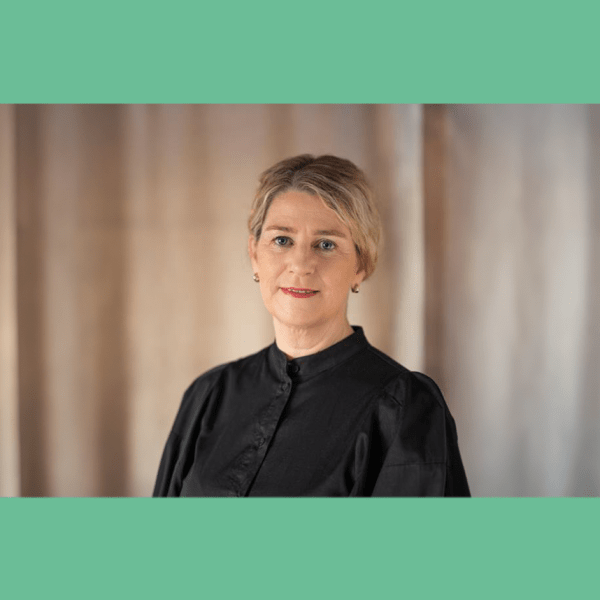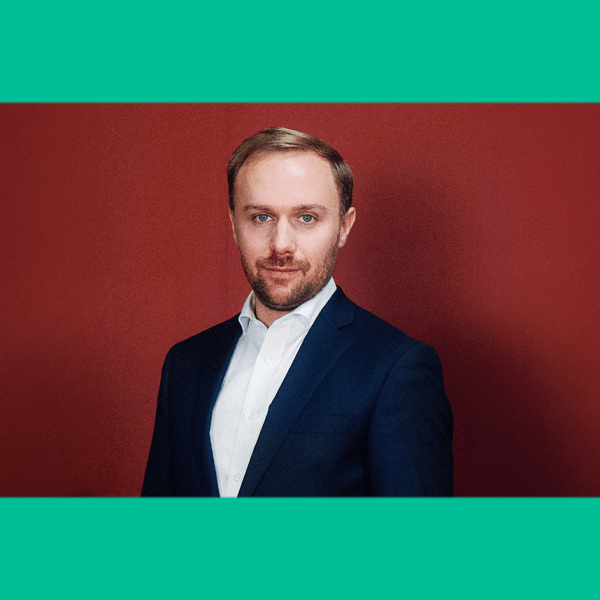Insights From Christian Clerc, President of Global Operations at Four Seasons Hotels and Resorts
Christian Clerc is one of the foremost global experts in luxury travel. At another fascinating Learning From Leaders conference, he spoke to Peter Vanham about his career and early love of hospitality, shared his strategy for navigating the brand through the recent crisis and offered optimistic ideas for a better future for tourism.
To enjoy the full conversation, access the recording here. Read on for highlights from this lively conversation about the life and learnings of an incredible leader; President of Four Seasons, Christian Clerc.
Maintaining Brand Integrity Throughout a Crisis
Navigating global brand Four Seasons through the recent pandemic required a great deal of skill and flexibility. Christian shared his approach to maintaining the company’s reputation for excellence while ensuring that the health and safety of guests and employees remained a priority. He explained his first step to crisis management: “In times of crisis you have to go back to the fundamental value proposition of your company, your core beliefs, what is the core DNA of your brand and how will you use this crisis to enhance the fundamental value equation that you offer to your guests and your clients.”
Four Seasons has provided outstanding luxury experiences for 60 years. Because of this longevity, “Our brand stands for quality and excellence and so our guests trust that in everything we do, in the big things and the small things, we are going to apply the same care, professionalism and quality.” What it comes down to is that, “The attention to detail has to be in keeping with what you’d expect from Four Seasons, but first and foremost we want you to know you are safe”, because “The foremost thought of travelers now is, ‘Is it going to be safe?’”
To ensure the utmost level of safety, Four Seasons has “put together a very thorough plan to re-open our hotels and provide guidance to our hotels to operate in the safest possible way”, Christian explained. This plays out in a variety of practices, including communication with guests as soon as they’ve booked to ensure that even the journey to their hotel is as safe as possible, as well as temperature checks immediately upon arrival.
But managing it all is easier said than done, because: “As science and technology evolves you have to adjust your game plan, so agility is huge.” And it requires employees across the company to embrace ongoing change: “You need to be willing to change your procedures regularly and the hotels need to be able to adjust quickly.”
Having a global presence helped the brand to formulate their crisis response: “Because we are a global company and because we have nine hotels in China, it was really insightful for us to see what was happening there and to start to prepare early on and to learn from this.” He went on to explain: “Although we were acting locally in China, we were making global plans, so we were a step ahead, but we were still very much reacting to what was happening.”
A company of Four Seasons’ size and reputation can access the expertise needed to manage this complex situation in the best possible way: “We have what we call a Lead With Care global advisory board made of some of the foremost experts in the world in the medical field. We are on a weekly basis reviewing our approach to our policies and procedures as it relates to how we operate, not only in regards to health and safety, but also the services that we provide. Right now we don’t have kid’s clubs operating, we don’t have spas, but, at some point, we will bring these services back.”
Alongside operational considerations, any business looking to survive a crisis of this magnitude needs to be financially prudent: “As you are creating your forecast for the year, and also for 2021, you need to ask yourself, ‘What does the path to recovery look like?’ And of course, it is hard to predict in the current environment. […] You have to make assumptions based on market intelligence that is not reliable in many cases, so you work on a number of scenarios.” Christian summarized his approach as: “Hoping for the best but planning for the worst and making sure you are stress-testing your assumptions.”
And although, “In general there is good news everywhere, but it is not all equal; market by market the situation is different”, ultimately, “Regardless of what happens on the ground our responsibility is to make sure that we don’t take a false sense of security from the fact that you might have less cases in certain parts of the world than others, but that we are really thorough and diligent.”
This conscientious optimism characterized the conversation and particularly the vision Christian painted of the shape he thinks travel will take in the near future.
Luxury Travel in the Wake of Coronavirus
Two timeless and defining components of luxury stand true even during this strange time. “The fundamental element in the luxury hospitality industry, as much as in any luxury business, is excellence in everything that you do. And, in the hospitality space, experiences have become the new currency of luxury, more than the design, the lavish architecture, the quality of the linen…”
Their commitment to providing unforgettable guest experiences means that Four Seasons have everything from 15th-century convents to urban towers in New York City in their property portfolio. “When you come to our hotels we want you to really get a sense of place, we want you to understand where you are, we want you to get a full exposure to the culture and local environment and we want to provide unique experiences through all the key services and amenities”, Christian shared. This includes the restaurants at Four Seasons hotels and resorts: “Food drives a large amount of the luxury hospitality industry today. Food drives travel”, Christian said, which is why they make every effort to ensure that their restaurants are destinations in their own right, and not just for hotel guests but for local people too.
However, these are not normal times and the brand’s strategy has had to shift. “I don’t think we will see normalized occupancy and performance such as we had in 2019 until at least 2022”, Christian revealed, and the changing concerns of travelers are shaping what luxury will look like in the short term.
Many aspects of the Four Seasons experience are not currently in operation. For example, their exclusive private jet has been grounded until early 2021. However, the company has quickly learnt what guests are looking for and have adapted accordingly: “Our private villa product is in incredible demand right now; anything that provides guests with privacy like a villa is perfect in the current environment”. As well as identifying and optimizing availability of experiences that suit the times, Four Seasons have brand touchpoints for customers not able to travel: “We also have a retail platform where we offer Four Seasons branded products so you can create a Four Seasons experience at home”. Christian explained: “I think what is important here is that you decide what your relationship with our brand is. Our guests are not only the people that are staying our hotels in a suite with us, we have people who come to our hotels to have a cup of tea in the lobby or a glass of champagne at the bar, or people who just like our pillows and order our pillows at home.” That was true before and remains true in this unique time: “Four Seasons is a gateway to a global experience and I think that the consistency of providing an experience that will be authentic, and the excellence with which we execute, has been the key to building our brand and is the key to the future.”
Christian has not been completely disheartened by the pandemic: “I am very optimistic and I believe that we will figure this out as a global community […] there are a lot of positives, hopefully, that will come out of it.”
Designing a More Sustainable Future
Pinpointing a silver lining in the global situation, Christian remarked: “I think this is a huge opportunity for the industry at large to make great strides into sustainable travel.”
At Four Seasons, they’ve been concerned with minimizing their impact for many years. Early in his time at the company, nearly 20 years ago, Christian was transferred to the Mexico office to develop a new resort. “We took very concrete steps”, he recalled, “making sure that as we developed this high end resort in Mexico we did it in a way that was respectful of the environment, that we integrated the resort into the natural beauty and landscape of the place but also that we were a good citizen and that we would provide great jobs to these employees that were joining the hotel and the brand.”
And they set off a chain reaction. In what had been an industry characterized by seasonal work, “We made the choice early on to give full time jobs to everybody and we did that for two reasons. We felt it was an important competitive advantage to attract and retain the best talent locally, and the second reason was because we felt it was the right thing to do”, he said. And in doing so, Four Seasons started a movement where every hotel nearby had to adjust and start hiring people full time. That transformed the lives of people working there: “It means they can get credit, they can buy a car, it adds a whole dimension to their personal success”.
It’s not just their policies that take the brand’s impact into account: “We work with the best experts in the world to ensure that the new buildings are not only great aesthetically, visually pleasing and amazing designs, but that fundamentally they use the latest and greatest of technology to ensure we are respectful of the environment and the impact that we have.” Responsible businesses must consider everything from the spaces they use to their outreach programs to ensure they have a positive impact on the people and places around them.
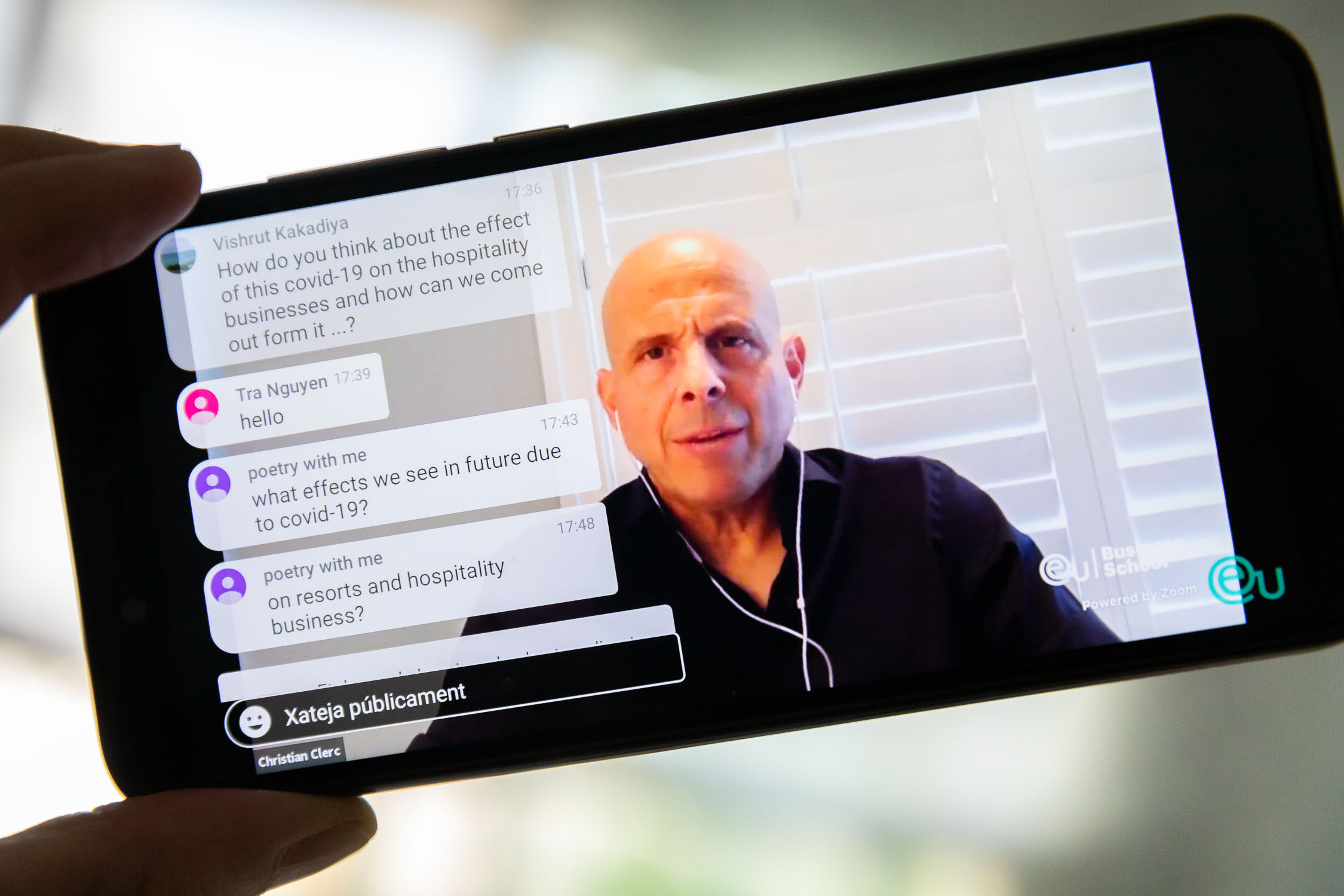
Sustainability and corporate social responsibility initiatives frequently feature in the strategies and activities of businesses around the world. However, measures taken often treat surface symptoms and rarely investigate the root causes of the negative impact global industry has on our planet. “Like every crisis this brings about opportunities to go beyond what we already do which is focus on environmental impact, carbon footprint and corporate social responsibility, to really think through carefully what the impact of tourism is”, Christian said.
Leading a Global Workforce
It’s clear from the insights Christian shared about his approach that he’s an inspirational leader. Asked about his leadership style, Christian referred to a Harvard Business Review article on the importance of emotional intelligence in leadership. “Leaders who show authenticity in their leadership style have a very impactful, very powerful following”, he commented, “It starts with being honest and being transparent and admitting when you don’t know something. […] To be very honest about what we know, the things that we don’t know and what you we are doing about it creates trust.” And during these difficult months, “Hope is what you are really trying to instill”, he reflected.
Leading with humanity is especially important at Four Seasons: “We’re a people business; when you go to our hotels what you will remember is not the interior design, the room, the bed, it will be the people you interacted with that provided this great service.” To enable the delivery of memorable service: “We want our employees to feel empowered, we want them to feel confident, and in order for them to be really motivated they need to feel a strong connection with the leadership of the company. I think the best way to achieve that is to have a clear vision, to be coherent in your strategies with your global vision for your brand, and then to equip your team with the right tools so they can do their job and to make sure that they feel empowered and trusted.”
“People today don’t want to be managed, they want to be inspired”, Christian added.
The Road to President
Christian has risen to become an eminent leader in luxury hospitality. He generously shared his career story to inspire and inform the audience of EU students, alumni and guests.
Christian was only 12 years old when he developed a passion for hospitality. He grew up in Montreux, Switzerland, living on the mountain above Lake Geneva. The family of a friend owned an Italian restaurant in town and Christian would often wait at the restaurant until closing time before staying at their house: “Instead of just waiting I would help, so by the age of 12 I could do every job in the restaurant, front, back, bar, pizzeria […] and I loved it, I really loved the energy […] that was how I fell in love with the restaurant business.”
As high school came to an end Christian was still thinking about a career in hospitality. On his father’s recommendation he enrolled in the prestigious Ecole hôtelière de Lausanne. Following graduation, he worked in the U.S.A. and then in the hotel business in Paris and Rome: “At the time I was more interested in learning than I was in titles. What was really important to me was, what was I going to get out of this role, and less what title was I going to have.”
“I was still thinking about being an entrepreneur. I never thought I would be in a company for this long and go up the ranks and be president”, he reflected, “I was more interested in learning and in having experiences sometimes outside of my comfort zone that would teach me something. That is how I acquired the general skill set that really helped me to move forward and still serves me well today.”
One of these experiences was working at the then-new Disney Resort in Paris: “It was not a hotel company, it was an entertainment company, but everything they do is with a level of professionalism that is exceptional, and it was a great experience for me.” Working at Disney also confirmed for Christian that he wanted to work in the hotel industry specifically, as opposed to the broader areas of entertainment or park services. He decided to return to the U.S.A. to pursue his career as a hotelier. And after developing his skills and leadership style under the wings of an influential mentor at a boutique hotel, Christian went in pursuit of career progression.
Thankfully, he knew what he was looking for: “Being Swiss, I was taught that quality always wins, so I was looking for a quality organization. If I was going to work at a company rather than an independent hotel or my own business, I wanted to be associated with a company that was going to be uncompromising when it comes to quality and excellence and, for me, Four Seasons was a great example of this. I also wanted a company that had a strong company culture where their values would match my personal values, values of ethics and integrity, and so I found a home.” Starting in 2000 as a hotel manager in Washington DC, Christian worked his way up the ranks to becoming president of the company 20 years later.
Reflecting on his journey, Christian said: “The more you go beyond your comfort zone, the more you get to realize that the things you enjoy […] But also it is important to know things you don’t like, that don’t make you happy, you’re not stimulated or maybe you’re just not good at them, and you don’t know until you try. It’s the same with leadership; the more you move around the more you experience leadership good and bad and you can learn from both. I’ve learned from the worst bosses things that I would never want to do and replicate to my own team, but I’ve learnt to analyze why does that person make me feel that way? What is it that they do? And to know I never want anyone that works with me to feel that way. Having that cross exposure is so important because it helps you to narrow down what makes you happy and what you’re passionate about.” And he advised the audience: “emulate the things you see that you like in people […] Everybody around you has things that they do better than you and if you can somehow understand, learn and emulate those things you become a better person, a better leader and a better professional.”
Pursuing Excellence and a Better Future
Finishing with a characteristic note of optimism, Christian informed guests: “Any crisis acts as an accelerator to technology to trends and if you can figure out what will have to change, because things have to change, you can turn this into an incredible opportunity for you.”
“This is hard, it’s unprecedented, but we will get through this and the world economy will be back on its feet regardless of which sector of the economy you look at” he said. As a global luxury travel expert and recognized business leader, he advised the audience that “The best place to be in this time is in school, learning”.
If you’d like to kickstart your career in tourism or equip yourself with the knowledge needed to identify new business opportunities, take a look at EU Business School’s programs, including our Bachelor of Art in Leisure & Tourism, and our BA (hons) in Business Management (International Business).


